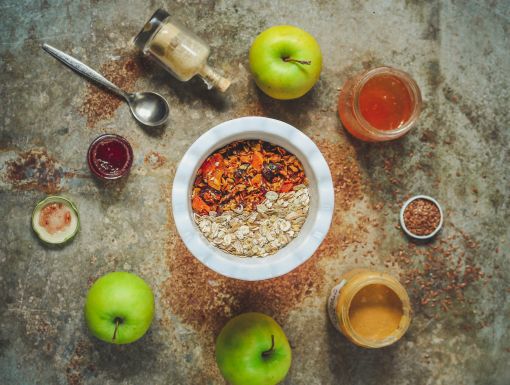
How to Choose a Healthy Yogurt
When it comes to making a nutritious, richly flavored yogurt, only three items – milk, cream and live active cultures – are essential, but the ingredient lists on yogurt labels can get cluttered quickly. Some of the most commonly used yogurt ingredients aren’t necessarily bad for your health, but they’re not really needed. Others, however, are best avoided altogether.
Read on for what to look for – and what to steer clear of – the next time you’re navigating the yogurt aisle.
Yogurt Ingredients 101
When it comes to yogurt ingredients and sweeteners, not are all created equal. The rule of thumb here is to avoid added sugars at all costs and opt for yogurts that have an ingredient list that is as minimal as possible.
Here are a few ingredients you may find when scanning yogurt labels and what they mean for your health.
Plant-based natural sweeteners: Good to go!
I always reach for natural, plain unflavored yogurt, which is delicious on its own, but also a nice base should I want to add fruit or other toppings for an extra burst of flavor. But if you’re looking for a yogurt with some built-in sweetness, go for options sweetened with stevia, monkfruit or erythritol.
Thickeners and stabilizers: Neutral territory
Gums and starches are carbohydrates that are used to thicken and stabilize yogurt products. They’re typically all-natural compounds that, in small amounts, do not pose a significant health risk.
- Gums that are common in yogurt include xanthan gum and gellan gum (both derived from carbohydrates that are fermented by bacteria), guar gum (from a pea plant native to India and Pakistan) and locust bean gum (from locust bean plants), as well as pectin and agar.
- Starches, such as tapioca starch, rice starch, corn starch and maltodextrin, are harmless, but add unnecessary refined carbohydrates to yogurt.
Sugary sweeteners: Stay away!
Added sugars go by many different names, some of which are seemingly innocent, including organic agave nectar, organic cane sugar, cane sugar, brown cane sugar and honey. But don’t be fooled; they’re all added sugar with no real nutritional benefit, and can quickly max out our upper limit for sugar for the day.
To schedule a nutrition consult, whether virtually or in-person, email nutrition@ochsner.org or call 504-733-1600.
Artificial sweeteners: Steer clear!
Acesulfame potassium and sucralose are among the most commonly found synthetic sweeteners in yogurt these days and should be avoided entirely.
Know your yogurt
When reading yogurt nutrition facts, keep these pro tips in mind:
- Look for options that contain more protein than sugar.
- Reach for yogurts that are as close to zero added sugar as possible.
- The fewer the ingredients, the better.
My top picks for yogurt with minimal ingredients are:
- Fage Total 2% Greek Yogurt is made with three simple ingredients: milk, cream and live active cultures.
- Bellwether Farms Sheep Milk Yogurt is made with pasteurized sheep milk and live active cultures.
Want to learn more about the different types of yogurt on market shelves, as well as the health benefits of each? Check out the “Navigating the Yogurt Aisle” episode on my wellness and nutrition podcast, FUELED.
A version of this article originally appeared on WGNO.com. See it here.



